Jenifa Mayanja
''THEY SAID: YOU PLAY JUST AS GOOD AS A MAN''
Interview with Jenifa Mayanja, July 2012

Could you describe your music to our listeners?
Some people have called my music organic deep house, some have called it spiritual deep house. I would call it a little bit of both; it's genre-defying and it has foundations in deep house, but it's definitely related to a lot of different roots-type, soulful music, such as soul, jazz and spiritual music. So any time you listen to something of mine, you might get a little reminder of some of these genres.
Did these influences come by when you were growing up in Uganda or did you pick them up when you came to The States?
Those influences were there from childhood. Not necessarily in the order of spiritual or organic, but just from the exposure to a lot of different music from my family, from my father, who is a music lover. So I got to hear a lot of jazz, reggae and just traditional African music. So naturally, as a human being, I'm hard-wired to listen to a lot of different types of music. That was my foundation and then expounded upon of course after moving to The United States and being exposed to those types of genres, as well.
You started playing out and organising parties in New York, is that correct? When did this happen?
Actually, I've been deejaying for some time before I moved to to New York, but it all started in the mid-nineties. I had a lot of residencies in NY at some big clubs, and also at a lot of lounges. The lounge scene in NY had at that time exploded due to the fact that mayor we had at the time, mayor Giuliani, cracked down on dance parties using a very old law, so people could not get together and dance, and it became very difficult... The club scene was basically obliterated and everything went underground into these small spots, so that's where I was hooked into. And then, Body and Soul came along, which were actually one of the first big parties around that time that started to build back up the underground dance music scene. I started playing there because Joe Costello, who was a owner at Dance Tracks Records where I used to work, gave me the opportunity to play, so it just progressed from there. The organisation of the parties came a little bit after, probably closer towards the end of the nineties. I started doing parties with some friends. The first party was Hamsa and when that ended, I started the Bu-Mako parties.

So how did Bu-Mako parties evolve into a recording label?
They evolved because I got my first child and it was just impractical for me to travel and put together a party, it was just too much. Reluctantly, I had to give up organising my own parties, but I still had that creative interest, I still had that drive to be creative, and I really didn't want to give up the concept, so I just moved it over into a recording label.
Have you been producing prior to your move to Connecticut?
Yes, I have producing for some time, but some of my projects may not be familiar to other people, because they were collaborations with other producers, and on another label. So the Bu-Mako label itself was not in existence before I moved to Connecticut. But before that, I have done production under different names with different producers, scattered around – in the nineties.
Your last year's album, which really got endorsed, is called Woman Walking in The Shadows. What's the title about? Who's the woman?
The woman walking in the shadows is me. And that came out of a frustration roughly two years ago. Every time that there was a mention of my work, it was always in some connection with my partner and husband in life, DJ Jus-Ed, who would be very familiar to a lot of people because of his Underground Quality label. So it was a frustration on my part because I thought well, even though we were partners in life at that time, we weren't doing things together, we had two distinct, separate labels. And I just didn't see the point in just trying to link in what his was doing to what I was doing; I wanted my own recognition for my effort, for my accomplishments. Then, I was just disappointed and frustrated with distributors, music reviewers, with just the industry at large on not giving me my merit, not giving me my due. But as it resolved, it became more of an affirmation, a statement in general for all women, because a lot of women do a lot of jobs that don't get any merit or recognition for – and that's okay. It's much more important that you know you're doing a great job, you know you're doing something with passion and intensity. So in time, it became less about me and more about just women in general. It's okay to be the woman walking in the shadows, it's good. It's a place for that and it's fine, you don't have to be in the spotlight.
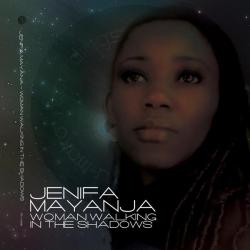
Was this disappointment with the music industry the main reason you went kind of DIY with your record label? As you mentioned, you have known a lot of people already, but you chose to release your records on your own.
If I had been doing Bu-Mako the recording label at the time I was involved in the middle of things, it would have been slightly different the way things have gone. But by the time I started Bu-Mako I had intentionally separated myself from all of that, because I didn't like it. It was not in line with the person that I am: it was jaded, it was people not respecting other people, and I really had no interest in that. I just wanted to make great music, as great as music that I could make, as true to myself as I could make it, and then bring people to it, listen to it and make their judgement. Also, I was making something that was so uniquely my own, that it was difficult to bring it to a label and have them not try to fit it into the mould of what they were doing; my sound was not fitting anywhere. I tried to fit it somewhere, but it just wasn't happening, so I was like 'OK, well that's too much work – let me just make a go of it myself and see what happens'.
Your compositional approach to writing music reminds me of actual songwriting. It must have been hard to approach people with that, especially in track-oriented electronic dance music.
Some of these people have a lot of experience in music, but the problem with music and music as a business is almost like oil and water. The music part is just music. When you mix the business in it, it changes the way people react to the music and the way they receive the music because they're just thinking about dollars and cents. In my own business, in my own life, I've had to figure out that downwards of what's true to myself, what I can live with, and also what makes financial sense. I think people mean too much one way towards 'Okay, well, is this going make money, is this going to be a hot track', and I don't think that way. I try to, but it just doesn't work with who I am, because I love music; so it can be difficult.
I think it's difficult enough for someone to experiment with music the way you do, but I also suspect you've had quite some trouble with getting credit and recognition simply because you're a woman. Am I right?
Absolutely, absolutely.
How does that manifest?
If I was looking at a comparison chart and think of people that started around at the same time as I did and put the effort that I did granted, the merits of you getting a hit is quantity vs. the quality, I guess. In other words, someone would say 'You've put out only ten releases vs. such-and-such producer over here, who's put out thirty tracks', so that's one way for people to say ''We can't give you the merit, because you've only put out ten vs. thirty'. But also, because I'm not solely focused on DJ-tracks, that's another way the credit gets taken away. Because rightfully, if I was in front of the judges that decide which person deserves to get the spotlight on them or what have you, I would be winded up that I would come off toward my counterpart that started with me, after me, and get way more coverage, way more invitations to play out, way more opportunities than I do. I'm not saying all that negatively, I'm past that. It's just an example of what goes on, and that's just me. Thousands of other women don't get even the slice of opportunity that I get, but I had to get a tremendous amount of work – and I'm still working to get the recognition, to get the platform to show what I can do.

I don't think that most people even understand what this disadvantageous position means, when they read about lesser opportunities for women.
No, they don't, but I don't expect them to. Unless you're in my shoes, it'd be difficult to understand. When they see an article in a known publication, they don't understand what goes on to get that to happen, the amount of years of letters, of releases, whereas Joe Somebody producer might come along and make one track and everyone is all over them, clamoring to book them, clamoring to interview them. But for me, it would take me five years just to get such-and-such just to review my music, you know. I don't expect a man in my position to understand that; all I can do is just keep talking about it, putting it out there and saying this is what I have to go through. I'm not complaining, I guess that's the way it is. If I can use any opportunities that I have to put the spotlight into help, not just complain, but to help change the landscape just by being consistent and persistent, so that hopefully, ten years from now, other women don't have to go through the level of struggle I had to go through – then great, I've done my part.
Even if it's not obvious, does latent sexism sometimes still exist in the background?
Yeah, sometimes it's quite shocking, especially if you're a well-meaning person. I've heard that when I go to play out, some people go 'Wow, I didn't think you'd play that well', but why would you say that? I've been playing for fifteen+ years and maybe even more, because I don't even keep track any more, and they said 'Oh... Really? Because... Oh... Wow. Well, you play just as good as a man'. What does that mean? You know, it's annoying, but after a while, you just ignore it and keep on going.
Would you rather have a music landscape that is totally ignorant of what gender you are or would you have a period of positive discrimination? Because, on the other side, there are some people that hire women regardless of their quality, just for the sake of quotas. Do you think it's the right approach?
No, I think that just sets us back. I've talked to a lot of women and many discussions go on amongst us, for instance the things that women have to do to get ahead, not just in music. Sometimes, the skill is not enough. Some women, we talk about it and laugh about it, have to play the role of a sexy vixen or hardcore something. If you're a real person, being yourself – that's not sellable. If you decide to go with the labels and the categorization to say you're the sexy vixen, you're going to get gigs – but that's what's going to come with it, people will just hire you because you're the sexy chick whether you've got the skills or not to be there. I think that really sets things back and doesn't really get us anywhere. It just keeps us circulating around in those roles of being hired because I'm cute, I'm just being hired because I'm a girl, I'm just being hired because I'm a woman, or it's a girl party... No, I don't subscribe to that. Why would you even waste your time with that? And if you're don't have the money, well hire some local DJs then, men or women. The ideal situation in general is where people are getting booked because they are good, first of all. They're good. Not because of some hype, not because of some record, not because of some image - because they are good. That's how it was in the old days, you were good. Your reputation got around that you were a good ass DJ, period. You didn't have to make a record. Now you need to make a record first. Second – if you're a woman, now you have to pick your place: what are you going to be? Are you going to be sexy vixen girl, are you going to be hardcore something, or you're just going to be like me: ' Look, I know I'm good at what I do, and I know that I've got something to give to the people. So, book me, and if you don't want to book me, that's your loss. That's people that are losing out on a potentially great night'. That's a road less travelled and it's a difficult journey, but the pay-off will be in the end. So, I can't solve all the problems, but ideally, I hope the ground will be levelled out eventually, and really based on merit, and not just on because you're a woman, because you're cute, or all the other nonsense.
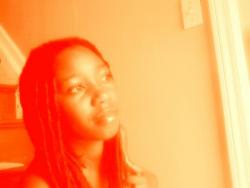
Going further in this direction, you've also formed a collective called Supreme Scyence, which consists of Dakini9, Lady Blacktronika and yourself. Can you tell us something about the concept behind it?
I'd say that the model that we chose would follow something similar to the 3 Chairs collective, but it's focused more on women in electronic music. We want to produce, we have a sound, and also we want to bring in a woman guest producer. It could be underground, it could be unknown, but we've basically created a platform where we're discovering that talent on a consistent basis. It's a concept of strength in numbers. I'm very much a person that's about reaching back and helping other people, and I want to leverage every little attention that I get not just to help myself, but also to make a contribution to the musical landscape for other women. Because I know there's a lot of women making tremendous music in electronic music as well as DJs. So, anything that we can do to elevate that and bring it to a more mainstream consciousness and make it more of a norm – that's what Supreme Scyence is about. So, the three of us decided to see what we can do, to create something positive; we produce music together and try to introduce someone else into the consciousness by putting them on this record.
You've compiled a mix for Radio Student. What is it about?
The mix that I did is just an introduction for the people that may not be familiar with my work and also with my label. It's called Bu-Mako Night Grooves, it consists of tracks on the label and also some remixes I made. I hope your listeners will enjoy it.
More info:
Discogs
Soundcloud
Bu-Mako Recordings
Twitter
Last.fm

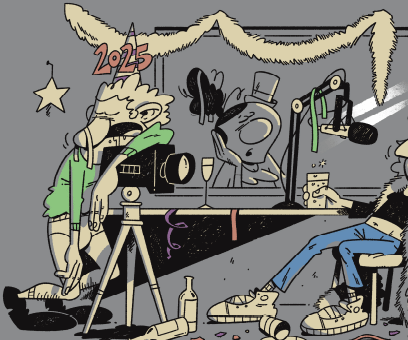





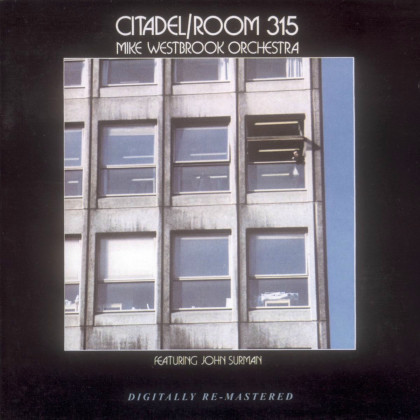
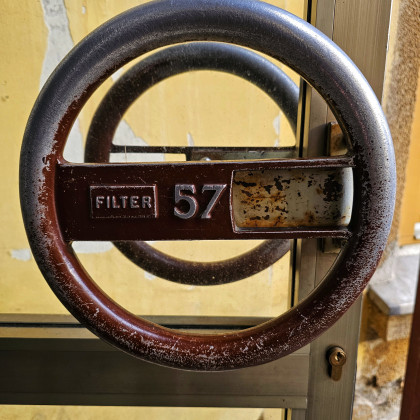
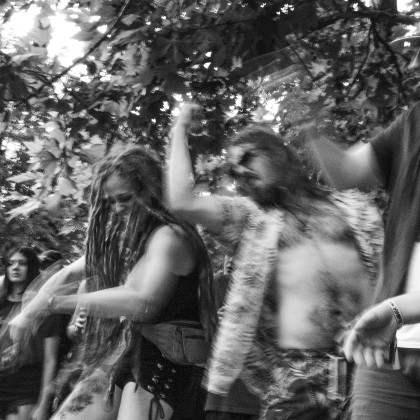

Dodaj komentar
Komentiraj